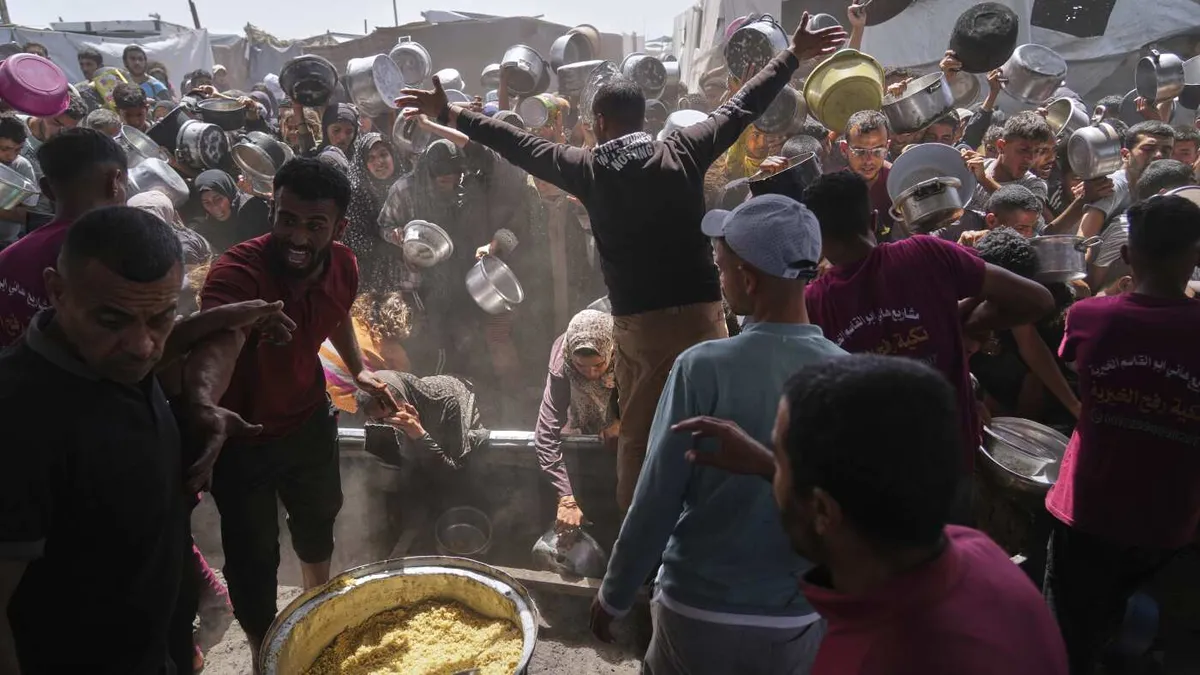
Tel Aviv, Israel — In a significant development, Israel has announced that it will permit limited food supplies into Gaza after imposing a nearly three-month-long blockade. This decision aims to avert a humanitarian crisis characterized by mass starvation as the Israeli military continues its new ground offensive in the region.
Since the commencement of the latest military operations on Sunday, Palestinian health officials report that over 100 individuals, including a substantial number of women and children, have lost their lives due to Israeli airstrikes. Wael Al-Kilani, a resident fleeing northern Gaza, described the situation as dire: "We have planes striking, artillery hitting near us, tanks invading. The bombing is very, very violent." This intensification of hostilities comes alongside ceasefire negotiations between Hamas and Israel, marking the most serious discussions in months.
Israeli authorities assert that they have targeted hundreds of Hamas installations and have successfully eliminated dozens of militants. Prime Minister Benjamin Netanyahu has pledged to escalate military pressure on Hamas, despite facing criticism from right-wing factions within Israel regarding the resumption of humanitarian aid. This blockade, the longest in history, was implemented as a strategy to isolate Hamas from essential supplies.
Amid growing international concern over the humanitarian crisis in Gaza, Israel is now relenting, allowing the entry of food supplies. A United Nations-backed panel of experts has warned of a looming risk of famine in the territory. In response to right-wing backlash against this shift in policy, Netanyahu revealed in a video statement that unnamed U.S. senators cautioned him that continued military and diplomatic support for Israel could be jeopardized if mass starvation occurred in Gaza.
Netanyahu emphasized that Israel intends to take full control of the entire Gaza Strip while ensuring that military operations continue unimpeded. The U.N. confirmed that Israel has approached them to facilitate limited aid delivery and is currently in discussions regarding the logistics of this process. The Israeli government has stated that this temporary aid measure will remain in effect until a new U.S.-led initiative establishes a more systematic aid distribution in military-secured zones within Gaza.
Jake Wood, an American military veteran spearheading the Gaza Humanitarian Foundation, announced plans to commence the distribution of basic food supplies by May 24, focusing on southern and central parts of Gaza, with intentions to expand operations to northern areas. However, the United Nations and various partner organizations have expressed their refusal to participate in this new initiative, labeling it as an Israeli strategy to weaponize humanitarian aid for military objectives.
Under the proposed Israeli plan, the population of Gaza would be required to relocate southward into a designated area, cordoned off by Israeli military forces, to ensure that Hamas members do not gain access to the aid. Israel's far-right finance minister, Bezalel Smotrich, stated that the food and medical supplies currently entering Gaza represent only the absolute minimum required for survival.
As the situation unfolds, the eyes of the world remain fixed on Gaza, where the humanitarian crisis deepens amid ongoing violence and complex political dynamics.